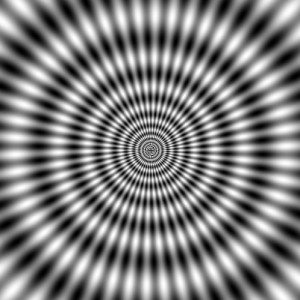Recently, during a small get together, a seventy year old relative of mine was sitting opposite me. She felt dizzy and suddenly her head fell back on to the chair. She was cut off for a few seconds. She also had repeated movements of her right forearm for a minute or so. Post recovery she had a couple of bouts of nausea and vomiting. Thereafter she went off to sleep and by morning far better.
I was witness to the entire episode as I was seated right opposite to her. She believed that she was fully conscious and never was cut off from the surrounding. Returning home the following day she visited a physician who labeled it as a possible case of labyrinthine vertigo and prescribed Tab Beta- histine.
This contradicted with my learning. What my teachers drilled into me was quite different. In my opinion this is a case of fits ?Jacksonian seizure, which needs to be investigated accordingly. Why was Beta-histine – a drug primarily meant for Meniere’s disease, prescribed?
To be sure I perused the various articles and definitions available and felt that Dizziness, Vertigo, Giddiness, Ear imbalance, Fits and Blackout are terms described differently in different areas of literatures and hence probably the confusion / misunderstanding by the public on this topic.
In the case of Dizziness, Cambridge dictionary [Noun] defines dizziness as a temporary feeling that your sense of balance is not good and that you may fall.
In Wikipedia dizziness is impairment in spatial perception and stability. Because the term dizziness is imprecise, it can refer to vertigo, presyncope, disequilibrium etc.
The oxford dictionary too gives a somewhat similar view.
When you read the above, you are given to understand that dizziness and vertigo is one and the same. Which is not what I believe?
My teachers three decades back, taught me something different. I find it to hold true even today. We were made to understand the differentiation in a simple and practical way. Once we understood the basic difference, management of a case of giddiness or dizziness becomes very simple. My patients have done well too. Through this blog I would like to share my experience in the process of diagnosing of a case giddiness.
Dizziness, Vertigo, Giddiness are terms commonly used by people. In my clinical practice of over 40 years, I have found these terms are used loosely by friends and patients to describe something related to the head. A good reliable history of the episode is the most important guide to the doctor in diagnosis and management of these patients. It is hence of paramount importance that the patient and their well wishers understands this and in turn explains the event clearly to the doctor.
We were told to classify all these case under one of these four terms. The terms are: –
- Dizziness,
- Vertigo
- Fits and
- Black out.
DIZZINESS:
- Dizziness includes any feeling “When there are No movements”. It is all only feelings.
- It include feelings like light headedness, faintness, Unsteadiness, Acrophobia [Fear of heights] etc. The point to be kept in mind is there is no movement of any sort.
- Patient is fully conscious and never cuff of from the surroundings even for a split second.
- Most of these are non pathological. They do well with self-assurances.
- Look at this picture carefully. This gives you a feeling of dizziness

VERTIGO OR GIDDINESS:
Vertigo and Giddiness is the same. Giddiness is layman term and Vertigo is technical term.
- Vertigo is defined as the sensation of spinning or swaying while the body is stationary with respect to the earth.
- In vertigo there are movements but these movements are virtual, not actual. I call it hallucination of movements. In dizziness there are no movements only feeling and hence differentiation is easy.
- The patient is fully conscious and in control. There is no dissociation from the surrounding even for a split second. That is because giddiness is due to input deficiency and the cerebrum [Brain proper] is not affected.
- The commonest cause of vertigo is due to ear imbalance [Labyrinthine]. You can have central giddiness too which is seen in Cerebellar etiology.
FITS OF SEIZURE:
Fits or seizures are the same. Usually occurs due to electric discharges in the cerebrum [Brain Proper].
- In fits there are actual movements not just hallucination. The movements may be localized like in Jacksonian or generalized like in Grandmal seizures.
- Since there is cerebral involvement the patient tends to lose control. Usually there is at least a momentary cut off [dissociation] from the surrounding. If it is forthwith then it is an excellent indicator of brains involvement.
BLACK OUT:
Black out occurs due to momentary hypoxia [Lack of adequate oxygen] in the cerebrum [Brain proper].
- Like in fits the movements are actual. Patient usually falls to the ground.
- Since the brain is involved there is momentary dissociation from the surrounding and loss of control.
- The etiology is vascular.
Giddiness or Vertigo should be ideally investigated and manage by an ENT surgeon. But fit and black out needs to be managed by a neuro physician / vascular physician. A meticulous description of the episode goes a long way in the diagnosis and correct management of a case of dizziness, vertigo or ear imbalance
By Shravan ENT
No comments:
Post a Comment